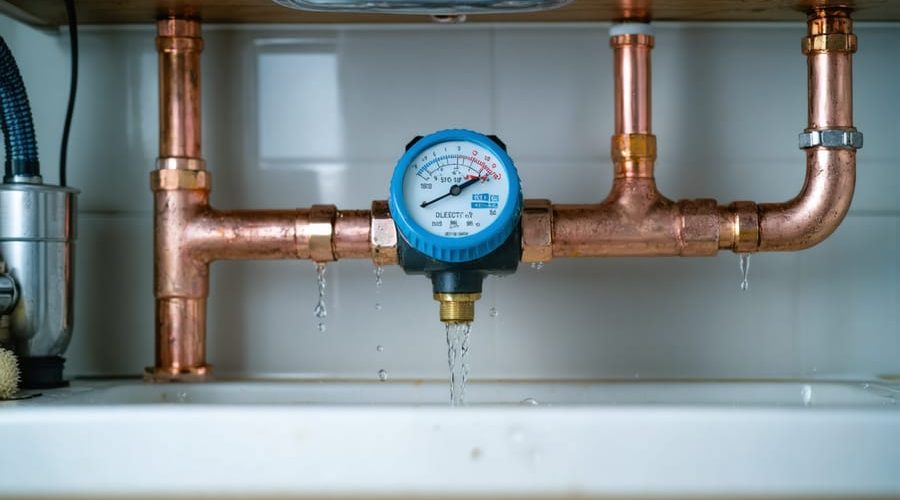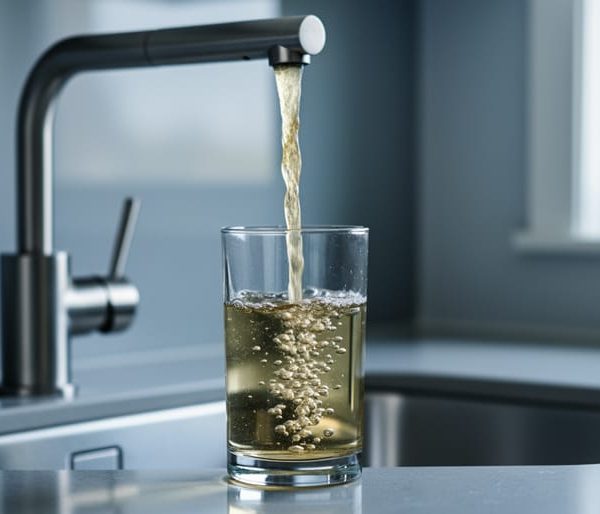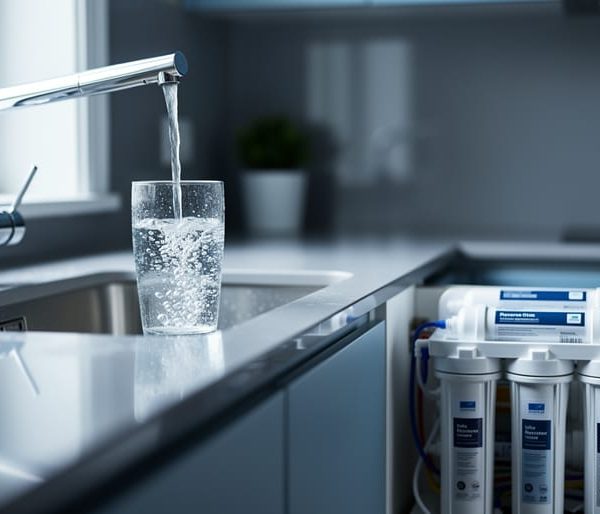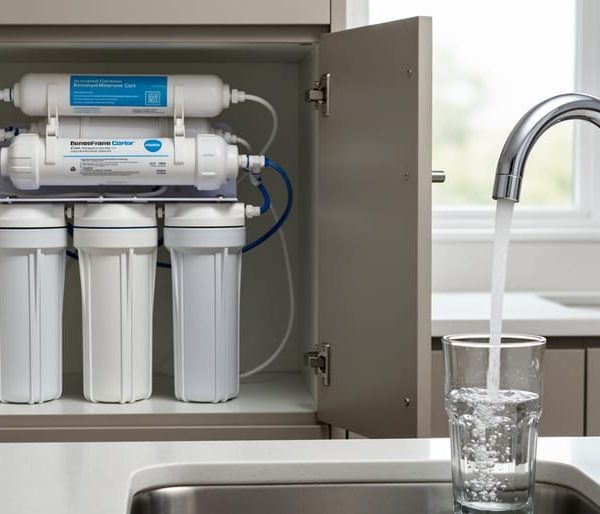Your monthly water bill tells only part of the story—hidden leaks, inefficient appliances, and wasteful habits can drain hundreds of dollars annually without you ever noticing. Smart water technology has transformed how homeowners monitor and manage their water usage, and understanding which manufacturers lead this innovation helps you make informed decisions for your home.
The smart water meter market has exploded in recent years, with manufacturers ranging from established utility infrastructure giants to innovative startups focused exclusively on residential water conservation. These devices do far more than traditional meters—they detect leaks in real-time, track consumption patterns room-by-room, send alerts to your smartphone, and provide actionable insights that reduce both your environmental footprint and monthly expenses.
Choosing the right manufacturer matters because not all smart water meters offer the same capabilities, accuracy, or long-term reliability. Some excel at whole-home monitoring, while others specialize in point-of-use tracking for specific appliances. Installation complexity varies significantly, as does compatibility with existing plumbing systems and smartphone platforms. Understanding these distinctions empowers you to select a solution that aligns with your specific needs—whether you’re primarily concerned about leak prevention, conservation goals, or simply gaining visibility into where your water dollars actually go.
This guide profiles the leading smart water meter manufacturers, explaining what sets each apart and helping you identify which brands deserve your consideration.
Why Smart Water Meters Matter for Your Home
Understanding how smart water meters can transform your daily life starts with recognizing a simple truth: most homeowners have no idea how much water they’re actually using—or wasting—until the bill arrives. Smart water meters change that dynamic entirely, putting real-time information at your fingertips and empowering you to make smarter decisions about your household’s water consumption.
**Real-Time Monitoring That Actually Matters**
Unlike traditional meters that require manual reading and provide only monthly snapshots, smart water meters continuously track your usage through connected apps on your smartphone or tablet. You’ll see exactly when and where water flows through your home, from morning showers to evening dishwashing. This transparency makes it remarkably easy to identify patterns and adjust habits that inflate your water bills unnecessarily.
**Catch Leaks Before They Become Disasters**
Here’s where smart meters truly shine: they can detect even minor leaks that often go unnoticed for months. That slow drip behind your washing machine or the running toilet you don’t hear at night? Your smart meter identifies unusual flow patterns immediately and sends alerts to your phone. Catching these issues early prevents water waste, property damage, and those shocking bills that come from hidden leaks—often saving homeowners hundreds or even thousands of dollars annually.
**Environmental Impact You Can Measure**
For environmentally-conscious households, smart meters provide tangible data about your conservation efforts. Watching your water usage decrease as you implement sustainable practices creates a rewarding feedback loop. You’re not just hoping you’re making a difference—you’re seeing it measured in real gallons saved.
**Long-Term Cost Savings**
While smart meters require an upfront investment, the combination of leak detection, usage optimization, and behavioral insights typically results in 10-20% reductions in water consumption. These savings add up quickly, often paying for the device within the first year while contributing to more effective home water management for years to come.
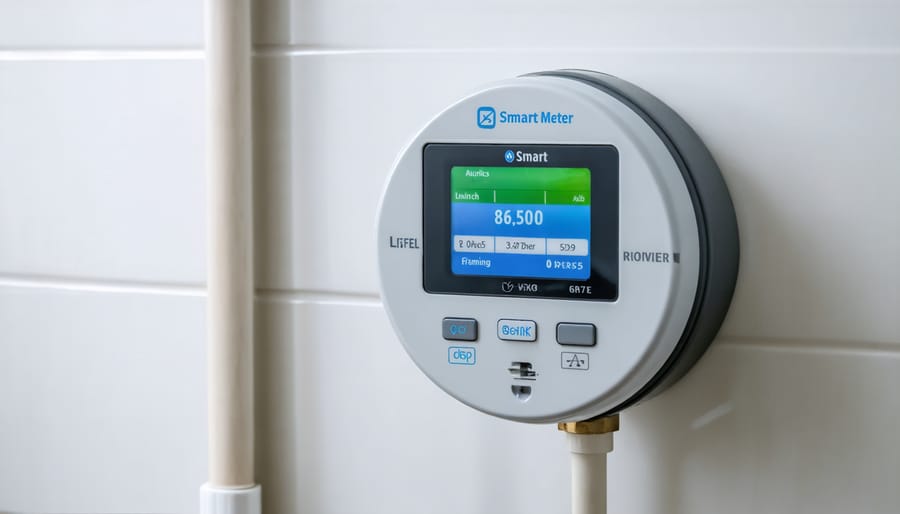
How Smart Water Meters Work in Simple Terms
Understanding how smart water meters work doesn’t require an engineering degree. At their core, these innovative devices use simple technology to give you unprecedented control over your water usage.
The heart of a smart water meter is a **sensor** that monitors water flowing through your pipes in real-time. Think of it like a fitness tracker for your plumbing—constantly measuring every gallon that passes through. These sensors are remarkably precise, detecting even minor fluctuations that might indicate a leak or unusual usage pattern.
Once the sensor captures this data, it needs to reach you somehow. That’s where **wireless transmission** comes in. Most smart meters use Wi-Fi, cellular networks, or low-power radio frequencies to send information to the cloud. This happens automatically in the background, similar to how your smartphone syncs photos without you lifting a finger.
The magic happens when this data reaches your **smartphone app or web dashboard**. Here, complex numbers transform into easy-to-understand charts and insights. You’ll see your daily water consumption, compare usage patterns over time, and receive alerts if something seems off—like a toilet running continuously or an unexpected spike in usage while you’re away on vacation.
Many smart water meters also integrate seamlessly with **home automation systems** like Amazon Alexa or Google Home. This connectivity allows you to check your water usage with voice commands or create automated routines that help you conserve water during peak hours.
The best part? Installation typically doesn’t require ripping apart your plumbing. Most models attach to existing meter points or main water lines, making the transition to smarter water management surprisingly straightforward for the average homeowner.
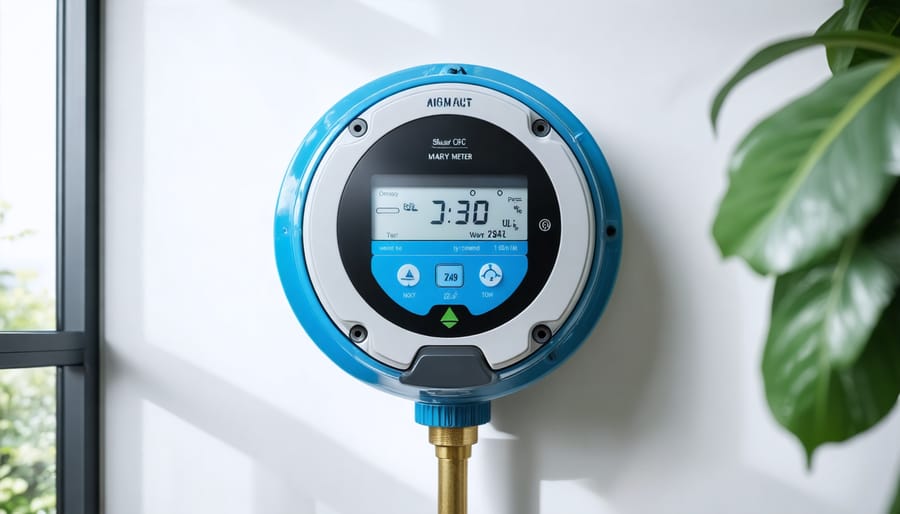
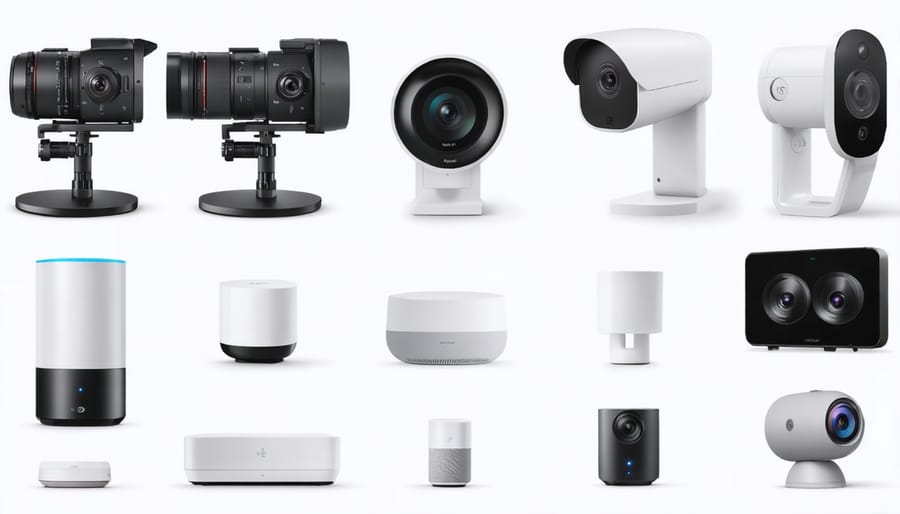
Leading Smart Water Meter Manufacturers You Should Know
Established Industry Leaders
When it comes to upgrading your home’s water management system, several well-established manufacturers have built sterling reputations over decades of innovation and reliability. These industry leaders offer smart water meters specifically designed for residential use, combining cutting-edge technology with proven durability.
**Badger Meter** stands as one of America’s most trusted names in water measurement, with over a century of experience. Their ORION® Cellular system brings enterprise-grade accuracy to homeowners, featuring leak detection alerts sent directly to your smartphone. What sets Badger Meter apart is their commitment to backward compatibility—many of their smart solutions can upgrade existing infrastructure without requiring complete meter replacement, making the transition to smart monitoring more affordable for average households.
**Sensus**, now part of Xylem’s water technology division, has revolutionized residential water conservation through their iPERL® smart water meters. These devices use ultrasonic technology (which measures water flow using sound waves instead of mechanical parts) to provide exceptionally accurate readings even at very low flow rates—perfect for detecting those sneaky toilet leaks or dripping faucets that waste hundreds of gallons monthly. Their systems integrate seamlessly with home automation platforms, allowing environmentally-conscious homeowners to track consumption patterns alongside other utilities.
**Neptune Technology Group** focuses on user-friendly innovation, with their R900® system offering some of the clearest data visualization tools available. Their residential meters include features specifically valuable for eco-living enthusiasts: daily consumption comparisons, conservation goal tracking, and educational insights about your water usage patterns. Neptune’s products are particularly popular in water-scarce regions where every gallon counts.
**Kamstrup**, a Danish manufacturer, brings European engineering excellence to the smart meter market. Their flowIQ® meters combine durability with environmental responsibility—they’re designed for 16-year lifespans with minimal maintenance. Kamstrup prioritizes data security and privacy, addressing common homeowner concerns about smart device vulnerabilities.
Each manufacturer offers unique strengths, but all share a commitment to helping households monitor consumption more effectively while reducing environmental impact through informed water usage decisions.
Innovative Newcomers Changing the Game
While established utility-focused manufacturers have dominated the water metering landscape for decades, a wave of innovative newcomers is transforming how homeowners think about water monitoring. These companies are bringing consumer-friendly designs, smartphone connectivity, and intelligent leak detection right to your home’s plumbing system—making water conservation accessible to everyone.
**Flo by Moen** stands out as a game-changer in residential water monitoring. This smart home integration specialist offers a whole-home water security system that installs directly on your main water line. What makes Flo special is its proactive approach: the device learns your household’s unique water usage patterns and can automatically shut off your water supply when it detects unusual activity that might indicate a leak. It’s like having a 24/7 water guardian protecting your home, even when you’re on vacation.
**Phyn** takes a similar protective approach but adds impressive precision. Their Plus system uses high-resolution pressure sensing technology—originally developed at the University of Washington—to identify even the smallest leaks that waste water and money. The system can detect a dripping faucet or a running toilet and send alerts to your phone immediately. For environmentally-conscious homeowners, this means catching problems before they escalate into major water waste.
**StreamLabs** offers another compelling option with their easy-to-install water monitor. This company focuses on making smart water monitoring incredibly simple—their device attaches to your existing pipe without requiring professional plumbing work. Perfect for DIY homeowners who want to start monitoring their water usage without major renovations.
What these innovative companies share is a clear mission: making water monitoring understandable and actionable for regular homeowners, not just utility companies. They’ve transformed water meters from mysterious utility equipment into helpful home management tools. Their mobile apps translate complex data into simple insights—showing you exactly where your water goes and how much money you could save by addressing small inefficiencies.
These newcomers prove that protecting our planet’s water resources doesn’t require complicated technology or professional expertise—just smart tools designed with everyday homeowners in mind.
What Sets Each Manufacturer Apart
When comparing smart water meter manufacturers, several critical factors help distinguish the right choice for your home. **Accuracy** sits at the top—leading manufacturers achieve measurement precision within 1-2% variance, ensuring you’re not paying for water you didn’t actually use. This level of detail helps identify even minor leaks that could waste thousands of gallons annually.
**Battery life** varies significantly across brands, ranging from 5 to 15 years. Longer-lasting batteries mean fewer maintenance interruptions and reduced environmental waste from replacements. Some manufacturers now incorporate solar-charging capabilities, aligning perfectly with sustainable living goals.
**Connectivity options** have evolved beyond basic Wi-Fi. Premium manufacturers offer multi-network support including cellular and low-power wide-area networks (LPWAN), which work like extended Wi-Fi specifically designed for smart home devices. This ensures reliable monitoring even in homes with connectivity challenges.
**App features** separate the basic from the exceptional. Look for manufacturers offering real-time usage alerts, customizable consumption goals, leak detection notifications, and historical data visualization. The best apps translate complex water data into actionable insights—like showing exactly how much water your morning shower uses.
**Integration capabilities** matter for smart home enthusiasts. Top manufacturers enable compatibility with platforms like Amazon Alexa, Google Home, and Apple HomeKit, allowing voice commands and automated routines.
Finally, **eco-friendly innovations** increasingly define manufacturer leadership. Some companies use recycled materials in device construction, offer carbon-neutral shipping, or donate portions of proceeds to water conservation initiatives—choices that amplify your positive environmental impact beyond just monitoring consumption.
Key Features to Look for When Choosing a Smart Water Meter
Choosing the right smart water meter involves more than just picking a well-known brand name. To make an informed decision that fits your home and lifestyle, consider these essential features that separate basic devices from truly effective water monitoring solutions.
**Compatibility with Existing Plumbing**
Before investing in any smart water meter, verify it works with your home’s plumbing setup. Most devices attach to standard pipe sizes, but older homes may require adapters. Check whether the meter fits your pipe diameter (typically ¾-inch or 1-inch for residential properties) and confirm it’s suitable for your water pressure levels. Some meters work exclusively with certain pipe materials, so understanding your home’s infrastructure prevents costly returns and installation headaches.
**Installation Requirements**
Consider whether you’re comfortable with DIY installation or need professional help. Many modern smart meters feature clamp-on designs that don’t require cutting pipes—perfect for renters or those avoiding plumbing modifications. However, inline meters (installed directly into your water line) often provide more accurate readings. Evaluate installation complexity honestly; while saving on professional installation sounds appealing, improper setup can lead to inaccurate data or even leaks.
**Data Accuracy and Real-Time Monitoring**
The best smart water meters deliver precise, real-time consumption data down to the gallon or even fraction thereof. Look for devices that update frequently—ideally every few seconds—so you can spot unusual usage patterns immediately. Advanced sensors differentiate between normal activities (showers, dishwashing) and potential problems, giving you actionable insights rather than just raw numbers.
**Alert Systems and Leak Detection**
Automatic alerts represent one of the most valuable features in smart water management systems. Quality meters should notify you instantly via smartphone app when they detect potential leaks, unusual consumption spikes, or continuous flow patterns. Customizable alerts let you set thresholds based on your household’s typical usage, reducing false alarms while catching genuine issues before they escalate.
**Integration with Whole-House Systems**
For comprehensive water management, choose meters compatible with smart home ecosystems like Alexa, Google Home, or Apple HomeKit. This integration enables automated responses—like shutting off water supply when leaks occur—and consolidates your home’s environmental monitoring into one convenient platform, amplifying your water conservation efforts.
The Environmental Impact of Smart Water Management
Smart water meters are game-changers for environmental sustainability, offering homeowners a practical way to reduce their ecological footprint while managing one of our most precious resources. These innovative devices go beyond simple measurement—they’re powerful tools for conservation that align perfectly with eco-conscious living.
**Real-World Water Savings**
Studies show that households using smart water meters reduce consumption by 15-20% on average within the first year of installation. This translates to approximately 10,000 gallons saved annually per household—enough to fill a backyard swimming pool. When multiplied across communities, the impact becomes staggering. Cities implementing smart meter programs report collective savings reaching millions of gallons monthly.
**Environmental Benefits Beyond Conservation**
Smart meters detect leaks almost immediately, preventing water waste that often goes unnoticed for weeks or months. The Environmental Protection Agency estimates that household leaks waste nearly 1 trillion gallons annually nationwide—water that could support 11 million homes. By catching these issues early, smart meters manufactured by leading companies help preserve freshwater resources while reducing the energy required for water treatment and distribution.
**Supporting Sustainable Living Goals**
For environmentally-conscious homeowners, smart water meters provide actionable data that transforms daily habits. Real-time monitoring reveals high-consumption activities, empowering families to make informed choices about shower lengths, irrigation schedules, and appliance usage. This visibility creates accountability and motivates behavioral changes that compound over time.
The carbon footprint reduction is significant too. Less water consumption means decreased energy for pumping, heating, and treating water—cutting greenhouse gas emissions associated with municipal water systems. Manufacturers are increasingly designing meters with eco-friendly materials and low-power consumption features, further enhancing their environmental credentials while delivering cutting-edge water innovations that make sustainable living accessible to everyone.
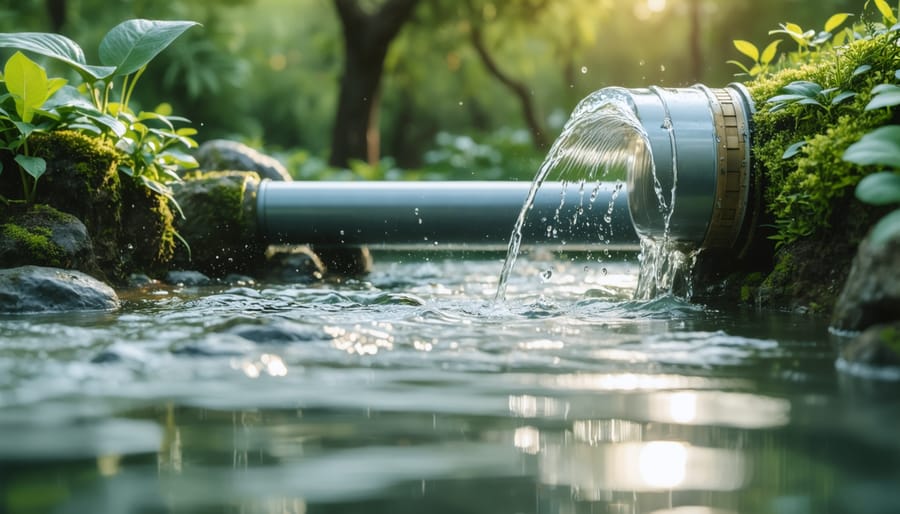
Installation and Integration with Your Home System
Installing a smart water meter in your home typically requires professional expertise, though some models offer simplified DIY options for tech-savvy homeowners. Most manufacturers recommend professional installation to ensure accurate readings and proper connection to your main water line. A licensed plumber can typically complete the installation in 2-3 hours, positioning the meter where it can monitor all household water usage effectively.
The beauty of modern smart water meters lies in their ability to integrate seamlessly with existing home systems. If you already have water filtration systems or softeners installed, smart meters can work alongside them to provide comprehensive monitoring. They track water quality changes and alert you when filters need replacement or when your softener requires maintenance—taking the guesswork out of whole-house water management.
Smart home compatibility varies by manufacturer, but most leading brands now support popular platforms like Amazon Alexa, Google Home, and Apple HomeKit. This integration allows you to check water usage through voice commands, view real-time data on your smart display, or incorporate water monitoring into automated home routines. For example, you could receive alerts on your phone if unusual water flow is detected while you’re away, potentially catching leaks before they cause serious damage.
During setup, expect a multi-step process: physical meter installation, Wi-Fi configuration through the manufacturer’s app, and system calibration. Most apps guide you through connecting to your home network and setting personalized alerts for daily usage limits, leak detection, and conservation goals. The initial calibration period usually takes 24-48 hours as the system learns your household’s water consumption patterns.
Consider your home’s Wi-Fi coverage before installation—the meter needs reliable connectivity to transmit data. Some manufacturers offer cellular-connected models for homes with weak signals near water mains, ensuring consistent monitoring regardless of your router’s location.
Smart water meters represent a meaningful investment in both your home’s efficiency and environmental responsibility. By monitoring water consumption in real-time, these innovative devices empower you to identify leaks quickly, understand usage patterns, and make informed decisions that reduce waste and lower utility bills. The manufacturers we’ve explored each bring unique strengths to the table—whether it’s advanced analytics, user-friendly apps, or seamless integration with smart home systems.
As you evaluate your options, consider what matters most for your household: Do you prioritize detailed consumption data? Need compatibility with existing home automation? Value ease of installation? There’s no one-size-fits-all solution, but understanding the differences between manufacturers helps you choose technology that aligns with your specific needs and budget.
Ultimately, embracing smart water monitoring technology connects you to the broader movement toward sustainable water use. Every gallon saved contributes to conserving our planet’s most precious resource while putting money back in your pocket. With the right smart water meter, you’re not just tracking water—you’re taking an active role in creating a more sustainable, efficient home for years to come.
